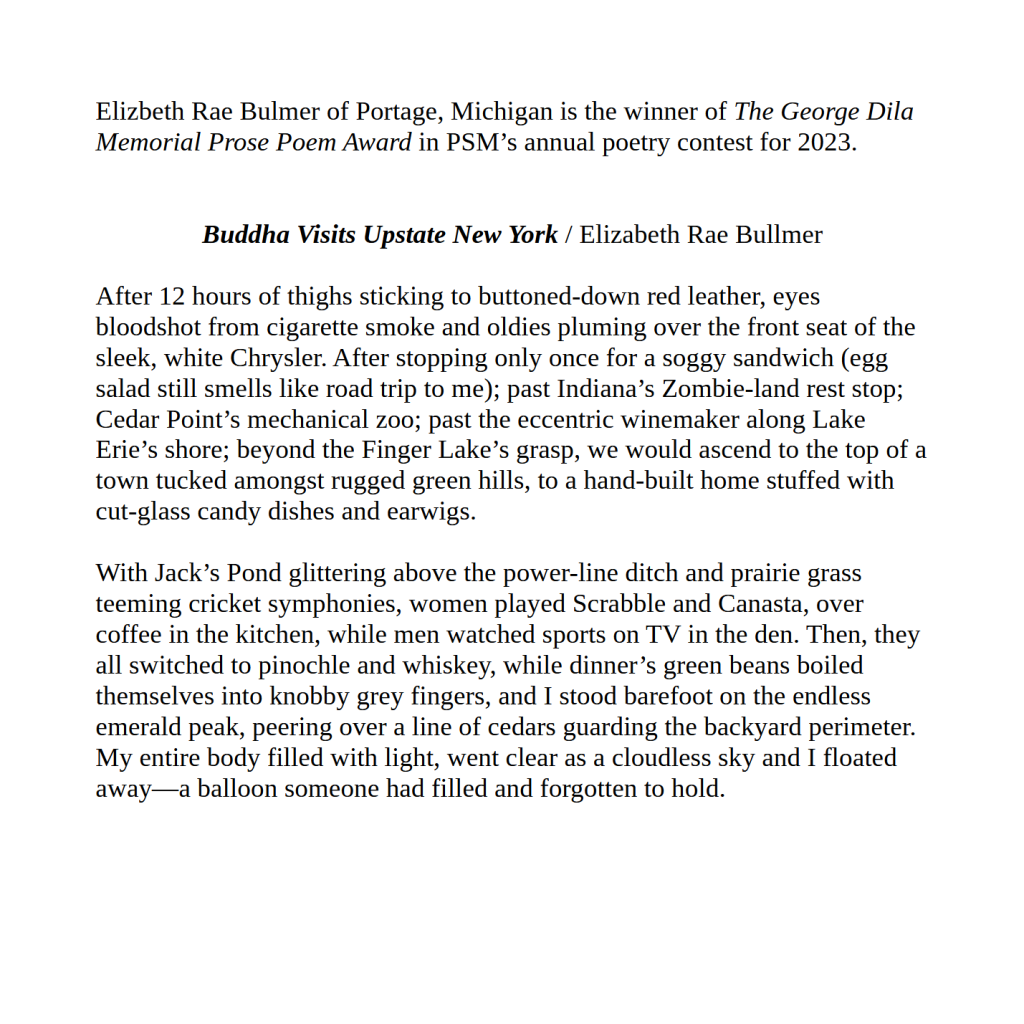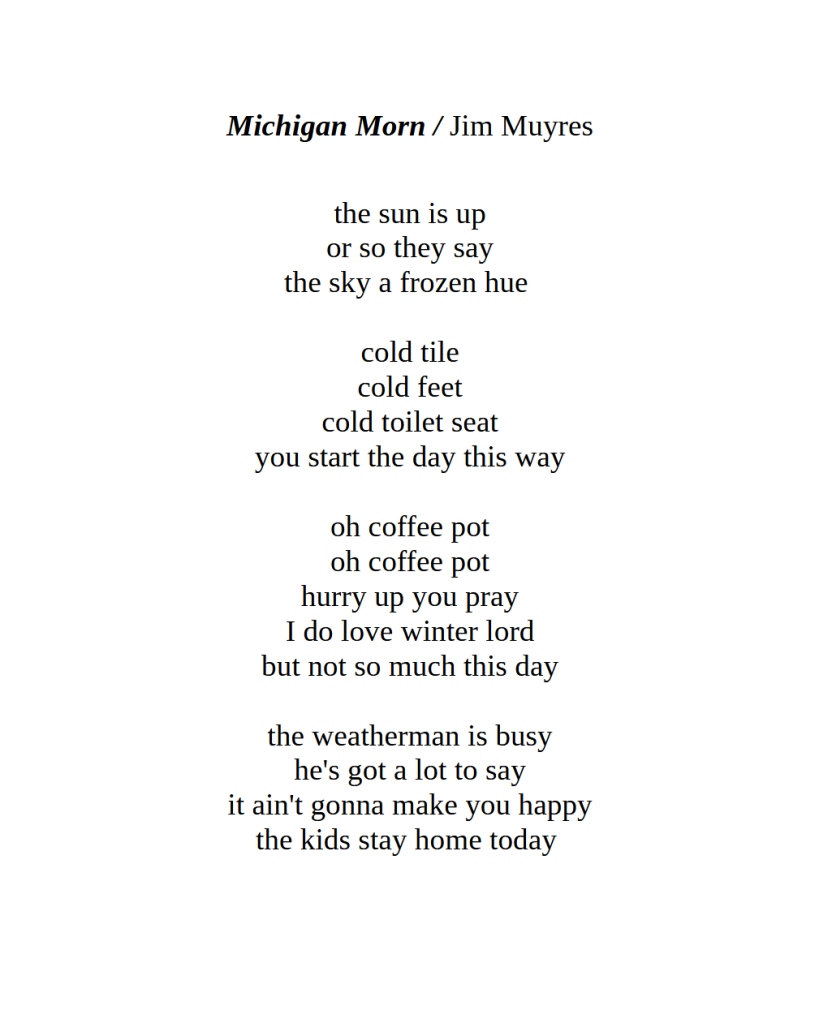
Tag: Poetry Society of Michigan
Wishes / Roberta Brown
The Blight / Iris Lee Underwood
Stupid / Elizabeth Kerlikowske
My Mother the Morning After / Jill Doster Marcusse
MID-WINTER WRITING PROMPT
MID-WINTER WRITING IDEA
When nobody wakes you up in the morning, and when nobody waits for you at night, and when you can do whatever you want, what do you call it, freedom or loneliness?
~Charles Bukowski (from The Most Beautiful Woman in Town & Other Stories)
Make an argument for any opposite—that love is actually hate; that freedom is loneliness; that grief is happiness; that success is failure; or that dying is living, or vice versa. The possibilities are endless!
David James
Letting Go
 As we begin winter in earnest, I’d like to share some writing exercises that use psychological and philosophical writing to inspire us. Read the excerpt and use its tone, message or phrasing as a seed in writing your poem.
As we begin winter in earnest, I’d like to share some writing exercises that use psychological and philosophical writing to inspire us. Read the excerpt and use its tone, message or phrasing as a seed in writing your poem.
“There is a beauty in the letting go, in the surrender to the unknown, to the inevitable. It is a beauty that is often overlooked, overshadowed by the fear of loss, of change. But it is a beauty that is nonetheless real, and it is a beauty that is worth embracing. When we hold on too tightly, we choke the life out of what we love. We become like the vines that strangle the trees, the weeds that suffocate the flowers. We must learn to loosen our grip, to allow things to flow, to change, to be.” ~Heidi Priebe (Book: This Is Me Letting You Go)
Write a poem in which you LET GO of someone or something you love, something you want to keep forever. Surrender in your writing “to the unknown.”
Good luck and have fun! Please stay warm, too.
David James
Buddha Visits Upstate New York / Elizabeth Rae Bullmer
Michigan Morn / Jim Muyres
Favorites / J. H. Danville
“Lives” by Arthur Rimbaud
Rimbaud’s “Lives” (Schmidt translation) feels deeply poignant watching what’s happening in the world. The line “What have they done with the Brahman who taught me the Proverbs?” strips Romantic notions of religion for a reality of war. “My wisdom is as much ignored as chaos…what is my nonbeing…” humbles us to invisibility. Then humbles even that. “I attempt to awaken my feelings in the memory of a wandering childhood” as we stumble to find some footing. To no avail, “skepticism can no longer be put to work.” The poem ends with a shattering sense of distance: we “can do nothing for you.”
– J. H. Danville
One translation of the poem, however, not Schmidt’s: https://www.poetryfoundation.org/poems/55037/lives






